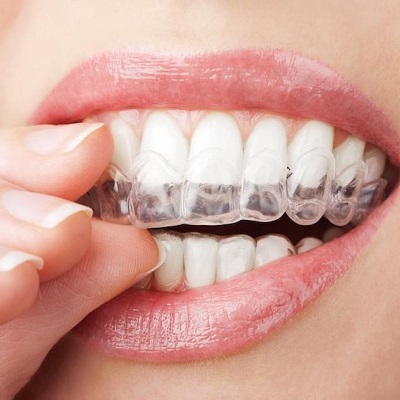Dental retainers play a crucial role in maintaining the results of orthodontic treatment. After investing time, effort, and resources into achieving a perfect smile, retainers ensure that your teeth stay in their newly aligned positions. Best Dental Retainers in Dubai, where dental aesthetics are highly valued, understanding the importance of retainers in post-orthodontic care is essential for preserving your investment in your smile.
1. Why Retainers Are Essential After Orthodontic Treatment:
Why: Teeth have a natural tendency to shift back to their original positions after braces or aligners are removed. This process, known as relapse, can occur gradually over time if retainers are not worn consistently.
How: Retainers help to "retain" the new position of your teeth, preventing them from moving back. They provide the necessary support to the teeth and surrounding tissues as they stabilize in their new alignment.
Dubai Insight: With the fast-paced lifestyle in Dubai, it’s easy to overlook post-treatment care. However, consistent use of retainers is key to ensuring that the results of your orthodontic treatment are long-lasting.
2. Types of Retainers and Their Benefits:
Why: Different types of retainers offer various benefits depending on individual needs and lifestyle preferences.
How:
- Fixed Retainers: These are bonded to the back of the teeth and are typically used for lower front teeth. They are convenient because they do not need to be removed and provide constant support.
- Removable Retainers: These are typically made of clear plastic or acrylic and can be taken out when eating, brushing, or during social activities. They are easy to clean and offer flexibility in wear.
Dubai Insight: Many Dubai residents prefer clear, removable retainers for their discreet appearance and convenience, especially in social and professional settings.
3. The Importance of a Retainer Wearing Schedule:
Why: Adhering to the retainer wearing schedule prescribed by your orthodontist is vital for preventing teeth from shifting.
How: Most orthodontists recommend wearing retainers full-time for the first few months after treatment, then transitioning to nighttime wear. This schedule allows the teeth to stabilize and minimizes the risk of relapse.
Dubai Insight: Dubai’s dynamic lifestyle may tempt you to skip wearing your retainer. However, consistency is key. Incorporate wearing your retainer into your daily routine, especially at night, to maintain your smile.
4. Adjusting to Life with Retainers:
Why: It’s important to become accustomed to wearing your retainer so that it becomes a natural part of your routine.
How: Start by wearing your retainer as directed by your orthodontist. Initially, you may experience slight discomfort or difficulty speaking, but this usually subsides as your mouth adjusts. Clean your retainer regularly and store it safely when not in use.
Dubai Insight: With Dubai’s active social and professional life, getting used to your retainer quickly will help you feel more comfortable and confident in wearing it regularly.
5. Maintaining Oral Hygiene with Retainers:
Why: Retainers can accumulate plaque and bacteria, leading to oral health issues if not cleaned properly.
How: Clean your retainer daily using a soft toothbrush and mild soap or a specialized retainer cleaner. Avoid using hot water as it can warp the retainer. Brush and floss your teeth before putting your retainer back in your mouth.
Dubai Insight: Dubai’s warm climate can increase the risk of bacterial growth. Regular cleaning of your retainer is essential to prevent bad breath and maintain oral hygiene.
6. Monitoring and Replacing Retainers:
Why: Over time, retainers can wear out or become damaged, reducing their effectiveness.
How: Regularly inspect your retainer for signs of wear and tear, such as cracks or loose wires. If you notice any issues, contact your orthodontist for a replacement. Even with proper care, retainers may need to be replaced every few years.
Dubai Insight: Dubai’s dental clinics offer high-quality orthodontic care and can provide replacements quickly if your retainer becomes damaged or worn out.
7. The Long-Term Commitment to Retainers:
Why: The need for retainers doesn’t end after a few months. Long-term use is often necessary to maintain the alignment of your teeth.
How: Some individuals may need to wear retainers nightly for several years, or even indefinitely, to prevent teeth from shifting. Your orthodontist will guide you on how long you need to continue wearing your retainer based on your specific case.
Dubai Insight: Given the value placed on aesthetics in Dubai, maintaining your smile is worth the long-term commitment to wearing a retainer.
FAQs:
Q: How long will I need to wear my retainer?
A: The duration varies depending on your specific orthodontic treatment. Initially, full-time wear is recommended, followed by nighttime wear for several years. Some people may need to wear a retainer indefinitely to maintain their results.
Q: Can I stop wearing my retainer after a few years?
A: It’s important to follow your orthodontist’s advice. Stopping retainer use prematurely can lead to teeth shifting back to their original positions. Discuss with your orthodontist before making any changes to your retainer schedule.
Q: What happens if I forget to wear my retainer for a few days?
A: If you miss a few days, you may notice that your retainer feels tighter when you put it back in. Wear it as much as possible to get back on track, and consult your orthodontist if you experience significant discomfort.
Q: How do I clean my retainer?
A: Use a soft toothbrush and mild soap or a retainer cleaner. Avoid using toothpaste or hot water. Regular cleaning is essential to prevent bacteria buildup and maintain your retainer’s condition.
Q: Can I wear my retainer during sports?
A: It’s best to remove your retainer during contact sports to prevent damage. Use a mouthguard instead and place your retainer in its case during the activity.
Q: What should I do if my retainer breaks?
A: Contact your orthodontist immediately for a replacement. Wearing a damaged retainer can affect your teeth and lead to discomfort or further damage.





Comments